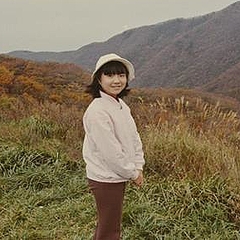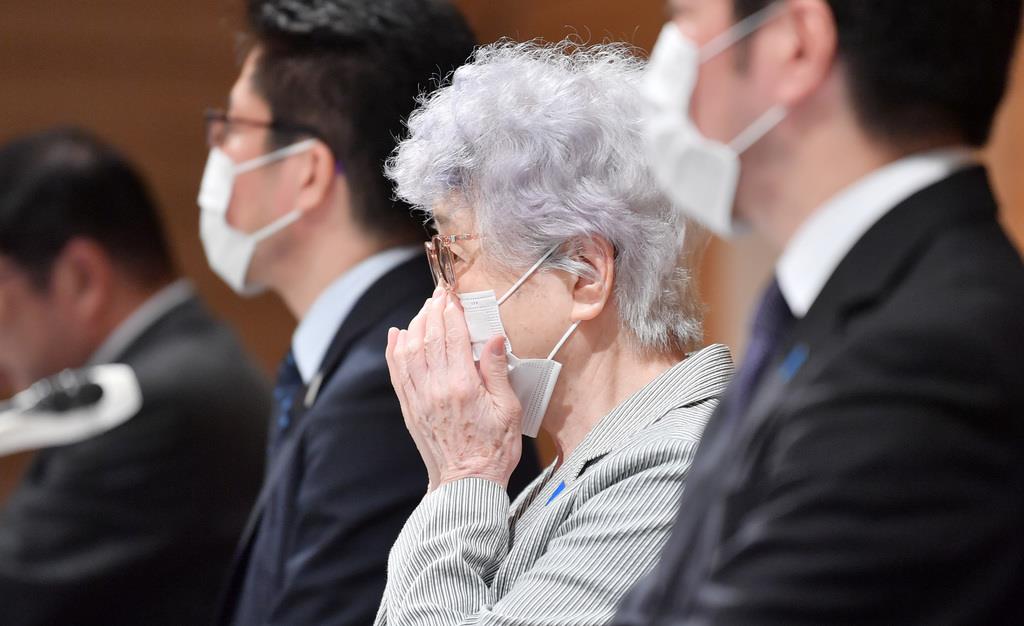拉致被害者、横田めぐみさんの父親・横田滋さんが、亡くなりました。長年、家族会のシンボル的な存在でした。87歳。原因は老衰とのことです。
Shigeru Yokota, a pivotal(中枢の、軸となる) figure in efforts to bring back Japanese nationals abducted by North Korea after his teenage daughter fell victim (犠牲になる)in 1977, died June 5 without ever being reunited with his child. His death at 87 was due to natural causes.
※abduct=拉致する →kidnap, snatch, spirit away等
※老衰で亡くなるは、die of/from old ageも
Yokota was at the forefront(最前線、最重要部) of a movement to pressure the government into retrieving 17 confirmed abductees.
※retrieve=取り戻す
※abductee=拉致被害者
As head of the association, Yokota and his wife Sakie became symbolic figures in the movement calling for the repatriation of Japanese abductees.
※repatriation=本国送還

めぐみさんが下校途中に行方不明となったのは1977年。手がかりのないまま20年たった97年、国会で取り上げられて北朝鮮の拉致が表面化します。滋さんは「実名でなければ信じてもらえない」と名前を出して娘を取り戻す事を決意します。
Despite the family’s frantic search(必死の捜索) for clues into her disappearance, it only came to light in February in 1997 following media reports and Diet discussions that North Korea was behind the abduction.Yokota then took the bold step of revealing his daughter's name to drum up public support for the return of abductees.
※drum up support for=〔計画・活動など〕への支持を得る、集める
北朝鮮は、拉致を認めたものの、めぐみさんは死亡したと伝えてきました。しかし送られてきた遺骨はDNA結果でめぐみさんのものではないことが判明しました。
In 2002, North Korea admitted it had snatched 13 Japanese. As part of an operation to train spies to master the Japanese language, North Korea embarked on a clandestine plan to spirit away Japanese nationals in the 1970s and early 1980s.
※snatch=かっさらう
※embark on=乗り出す
※clandestine=悪だくみなどを秘めた内々の、秘密の
※spirit away=ひそかに連れ去る
Japan rejects the claim that she has died, in part because the cremated remains submitted by Pyongyang were found through DNA tests conducted in Japan to not be hers.
※cremated remains=遺骨
トランプ大統領が国連総会で、めぐみさんに言及したこともありましたが、北朝鮮が挑発的な態度を取り続ける中、拉致問題は後回しになってきています。
Desperate for a breakthrough, Japan solicited help from the United States. President Donald Trump referred to Megumi in an address to the U.N. General Assembly in September 2017, saying, "We know it (North Korea) kidnapped a sweet 13-year-old Japanese girl from a beach in her own country to enslave her as a language tutor for North Korea's spies."
※solicit=懇願する
※enslave=奴隷にする
The abduction issue has also taken a backseat in the international community as North Korea has continued to adopt an increasingly provocative stance by firing off improved missiles and carrying out nuclear tests.
※take a backseat 〔車の〕後ろの席に座る 〈話〉二番手に甘んじる、重要でなくなる
※provocative=挑発的な
Yokota’s passing is unlikely to bolster the movement and could instead encourage Tokyo to put the issue on the back burner.
※put ~ on the back-burner=~を後回し[棚上げ]にする、~を保留する、~を二の次にする
安倍首相は断腸の思いであると述べました。
Shinzo Abe expressed his condolences for being unable to retrieve Megumi before Yokota’s death, calling the news “gut-wrenching”.

活動を共にしてきた妻、早紀江さんは、「めぐみを取り戻すために二人で頑張ってきましたが、主人はめぐみに会えることなく力尽き、今は気持ちの整理がつかない状態です」と言われました。
“Up until now, my husband and I have worked hard to bring back Megumi, who was abducted to North Korea. We’ve received encouragement and support from many, including Prime Minister Shinzo Abe,” the statement said. “But my husband succumbed before he got to see Megumi. We can’t sort out our feelings.”
※succumb (to) =(誘惑・悲観・病気・高齢等に)屈服する、圧倒される、負ける、倒れる yield to
※sort out=整理する
以下は朝日新聞の天声人語からです。
VOX POPULI: RIP, Shigeru Yokota, the best father anyone could wish for June 6, 2020.
When she was a little girl, Megumi Yokota got lost in a department store, and the store paged her parents on the PA system. They came running to collect her. To their surprise and relief, Megumi was having a great time, loving the ribbon that a kind floor saleswoman had tied in her hair. And she said to her parents, "Dad and Mum, where did you get lost?"
横田めぐみさんは幼いころ、デパートで迷子になった。館内放送で呼び出され、両親は慌てて駆けつける。めぐみさんは売り場のお姉さんにリボンを結んでもらって上機嫌だった。「パパとママはどこで迷子になってたの?」
In 1977, 13-year-old Megumi was abducted on her way home from school in the city of Niigata. On the night she went missing, her father, Shigeru, went to her school and looked in every toilet cubicle. Then, suspecting she might have been involved in a hit-and-run, he went on his hands and knees to search for a tire mark along the route she usually took to and from school.
めぐみさんが新潟市内で下校中に拉致されたのは1977年。13歳だった。父の滋さんはその夜、中学校のトイレの扉を残らず開けて回る。交通事故を疑って通学路にはいつくばり、タイヤ痕を探した。
Shigeru had turned 45 the day before. For his birthday present, Megumi had given him a comb, saying, "It's time for you to start looking spiffy." This was her affectionate way of reminding him that he needed to be more mindful of his personal appearance, and her sweetness touched him deeply. From that day on, he never went anywhere without that comb.
前日は滋さんの45歳の誕生日だった。「これからはおしゃれに気をつけてね」。めぐみさんから受け取ったのは1本のくし。身なりに無頓着な父を気遣う優しさに打たれた。以後、どこへでも持ち歩いた。
After devoting four decades of his life to searching for his missing daughter and praying for her safe return, Shigeru died on June 5. He was 87. I will never forget a news conference he gave in the winter of 2004. The Japanese government had just determined through DNA tests that, contrary to Pyongyang's claim, ashes returned from North Korea were not Megumi's. "With profound anger, I protest against this fabrication of ashes," a grim-faced Shigeru said as he forced out his words in a low voice. There was no mistaking the sheer depth of the suffering he was being forced to endure.
めぐみさんの救出に一生を捧げた滋さんが87歳で亡くなった。忘れがたいのが2004年の冬の会見である。北朝鮮がめぐみさんのものとした遺骨を日本政府は別人の骨と断定。「満腔の怒りをもって遺骨捏造に抗議する」。低い声、険しい表情。耐えてきた無念の深さをまざまざと実感した。
The news of his death prompted me to open a book that is filled with memories of Megumi. One photo shows Megumi riding a tricycle. In another. she is staring at a giraffe. And there are snapshots of Megumi with her twin little brothers whom she adored. Her mother, Sakie, also appears in many pictures. But the book contains only one photo of Shigeru. Cuddling an infant Megumi, he is smiling shyly at the camera.
訃報に接して、めぐみさんの思い出がつまった本を改めて開く。三輪車にまたがり、キリンを見つめ、双子の弟をかわいがる。妻早紀江さんの写真も多い。だが滋さんが写るのは、わずかに1枚。幼いめぐみさんを抱き、照れたような笑顔を浮かべる。
Ever mild-mannered around people, Shigeru refused to ever present himself as a tragic hero. The years he was allowed to live with his daughter were short. But he more than made up for the brevity with his genuine love and caring. He was the very best father any daughter could wish for.
いつも穏やかに人と接し、悲劇の主人公を演じることは決してなかった。娘と暮らせた月日は短かったが、その分、深く濃く心を通わせた最良の父であった。


